The main structure of the chiller is easy to understand. It is basically consist of the evaporator, compressor, condenser, expansion valve and other important accessories. The cooling equipment is evolving from the single refrigerant refrigeration to the evaporator along with other accessories refrigeration. This reflects the growing emphasis on energy efficiency and sustainability of technological innovation. The evaporator of the chiller becomes a more efficient and low-energy refrigeration equipment with the progress of science and technology.
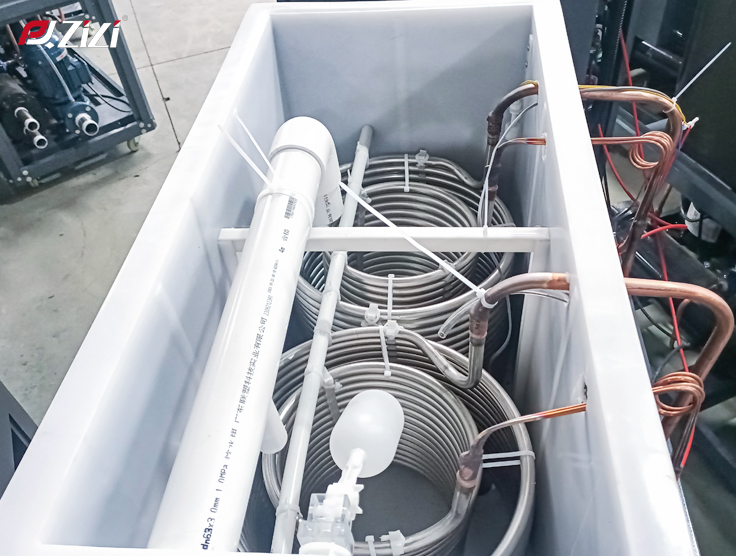
The evaporator plays an important role in most of the cooling equipment. In the industrial chiller, the evaporator is usually used in water-cooled chillers, which are linked with the cooling tower. During use, the cooling tower reduces the water temperature by spraying hot water onto the evaporator and using the heat absorbed when the evaporating water evaporates to achieve the purpose of cooling.
The evaporator has a great role in the water cooled chiller, and the fin occupies the dominant position in the air cooled chiller.
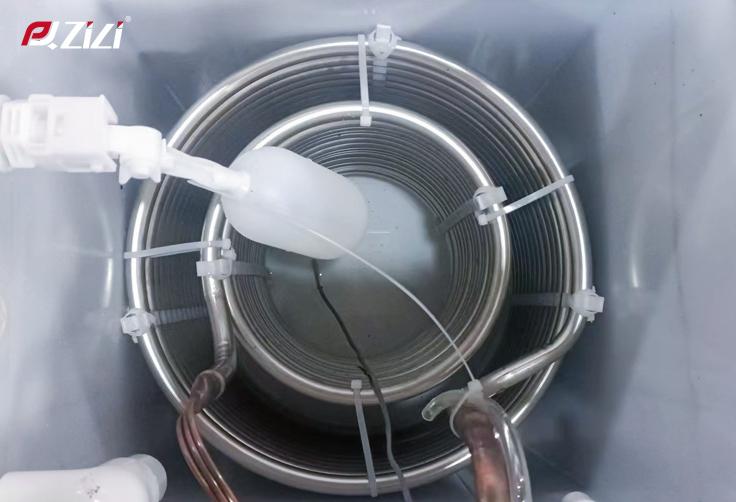
In the water cooled chiller, the evaporator can evaporate the high temperature and high pressure refrigerant treated by the compressor, and the refrigerant will gradually evaporate to achieve the need to reduce the temperature. In the process of refrigerant processing in the evaporator, the refrigerant will emit a lot of heat to complete its liquid to gaseous transformation. At this time the evaporator will effectively absorb heat by contact with the cooling water, so that the refrigerant can quickly evaporate and complete the cooling task.
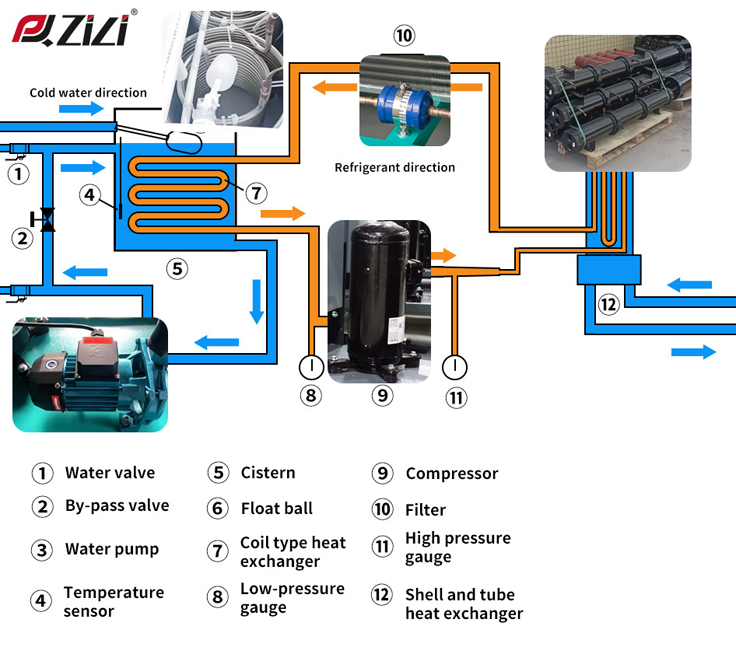
The running state of the evaporator determines the cooling effect of the chiller. A well-designed evaporator can improve the energy conversion efficiency, maximize the refrigeration effect with the least amount of resources, reduce energy consumption, and thus make the chiller more energy efficient.
Evaporation process: When the liquid refrigerant enters the evaporator, its pressure will be reduced, causing part of the liquid refrigerant to quickly evaporate into a gas state. This process requires the absorption of a lot of heat, which is mainly from the surrounding environment or the medium inside the evaporator (such as air or water).
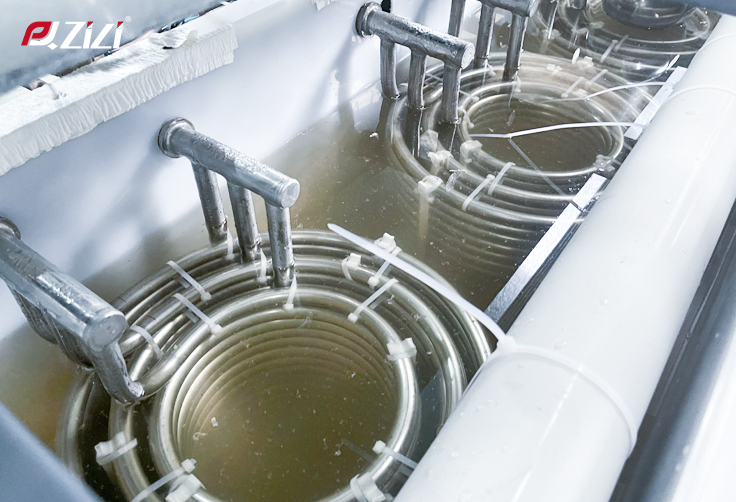
Heat exchange: In the evaporation process of the evaporator, the liquid refrigerant absorbs heat from the high temperature environment (the water of the cooling tower), making the surrounding environment or the temperature of the medium drop.
Cooling effect: After the treatment of the evaporator, the refrigerant evaporates into a gas state, completing the heat conversion, resulting in a significant reduction in temperature, and the surrounding environment or medium will achieve the purpose of cooling because of the work of the evaporator, the cooled medium (generally the cooling tower’s cooling water) will begin to circulate for cooling objects.
Reduce chemical pollution: From the above description, the evaporator mainly uses the physical principle of refrigerant evaporation in the refrigeration process, while some traditional refrigeration systems use chemicals such as freon to cool down. When freon is used as a cooling medium, it will emit gases that pollute the environment, so when choosing a chiller, it is best to choose a machine that uses an evaporator to cool down, which can reduce chemical emissions to the environment, and the damage to the atmosphere and the environment will be less.
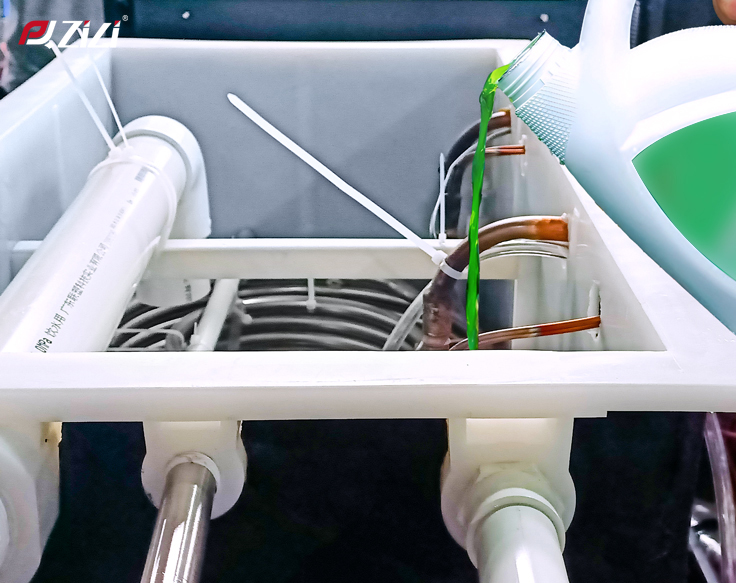
Water Conservation: In some devices such as cooling towers, evaporators reduce the water temperature by evaporating the heat absorbed when the water evaporates, thus achieving the cooling effect. Compared with traditional cooling methods, evaporators can use water more efficiently and reduce the waste of water resources.
Improve energy efficiency: The design and operation of the evaporator have an important effect on the energy efficiency of the refrigeration system. Excellent evaporator design can improve the efficiency of heat conversion and reduce energy consumption.